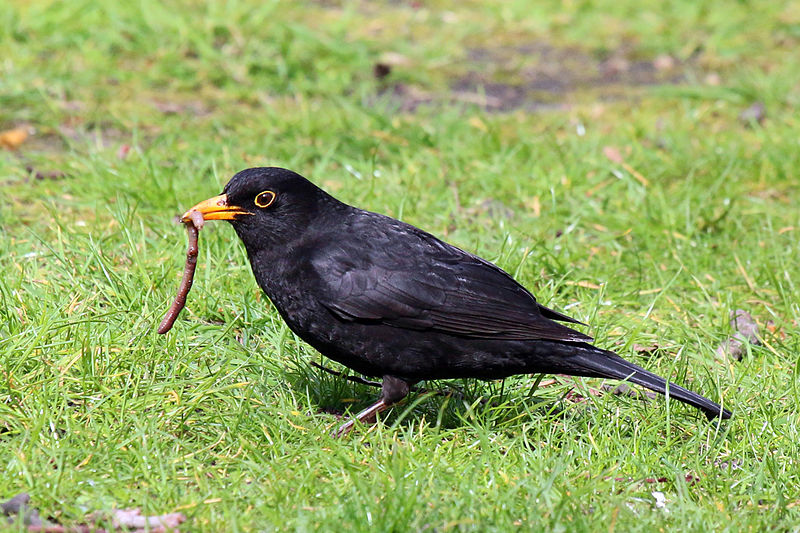No, no, this isn't difficult: an angledug is, obviously, the same as an angletwitch...
...or, as those of not from the South West of Britain call them, earthworms:
photo by Aruna
You'll find them in, well, earth, but there are angledugs more or less everywhere - in water, up trees, and even on sea shores. Some are only a centimetre long, and some in the Mekong Delta reach three metres.
Blackbirds and other thrushes are particularly good at finding angledugs:
 photo by
photo by
Charles J Sharp   |
|---|
| |
but they provide a good dinner for all sort of creatures - gulls, crows, snakes, bears, foxes, hedgehogs, pigs, moles, beetles, snails, slugs - and people: noke is a Maori delicacy consisting of earthworms (which is worth remembering if you're in New Zealand and faced with a menu).
The saddle-type thing on an angledug shows the worm is adult, and it is used for producing eggs. (All angledugs are female - but then they're all male, too, at the same time.) They're born as tiny worms that can shift five hundred times their own weight in soil, which is more than you can.
Be careful about touching an angledug. If it's the Australian Didymogaster sylvaticus, or blue squirter earthworm, it will throw up spectacularly over you. If it's a more ordinary worm then you will poison it with the salt from your fingers. No wonder the poor things writhe.
Lastly, if you cut a worm in two then there's just a chance both halves will regenerate into two new worms - but almost certainly they won't, and you'll end up with a single dead worm.
Or, just possibly, a noke garnish.
Spot the Frippet: angledug. I have no idea at all where this word came from, but it's valid in Scrabble.





















